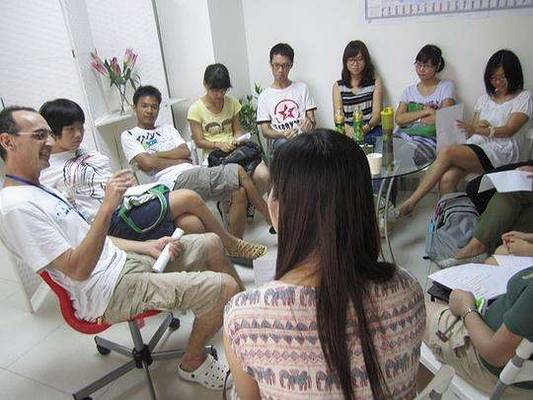原标题:六大学英语下册《有必要掌控的四大时态》,请为孩子保藏!
开学半个月了,孩子们掌控好新学期的常识了吗?王教师今日预备了 六大学英语下册《有必要掌控的四大时态》,孩子学习必备!
六大学英语下册《有必要掌控的四大时态》
一般如今时
首要描绘常常会发生的动作、状况或不变的真理。
句末常呈现every day/week/year/Monday , in the morning;句中常有always, usually, often, sometimes
构成1.主语+be+名词(描述词)
I am a student.
He is tall.
否定句:在be 后加not
I am not a student.
He is not tall.
疑问句:be 动词提前到第一位。
Are you a 
student?
Yes,I am./No,I am not.
Is he tall?
Yes,he is./No,he isn’t.
构成2.主语+动词+地址+时刻
We go to school on Monday.
He goes to the park on Sunday.
否定句:主语+don’t/doesn’t’t+动词原形+地址+时刻
We don’t go to school on Monday.
He doesn’t go to the park on Sunday.
疑问句:在句首加do或does
Do you go to school on Monday?
Yes, we do./ No, we don’t.
Does he go to the park on Sunday?
Yes, he does./ No, he doesn’t.
如今进行时
首要叙说正在发生的作业。
句末常呈现now;句首常呈现look, listen。
构成主语+be +动词ing方法
I am reading English.
They are swimming.
He is playing football.
否定句:在be后加not
I am not reading English.
They are not swimming.
He is not playing football.
疑问句:将be 放到第一位。
Are you reading English?
Yes, I am./ No, I am not.
Are 
they swimming?
Yes, they are. / No, they aren’t.
Is he playing football?
Yes, he is. / No, he isn’t.
一般曩昔时
首要描绘曩昔发生的作业。
句末常呈现last night/week/Monday/year, yesterday, ago
构成主语+动词曩昔式
I was a pilot.
They were busy.
He went to the market.
否定句:在be后加not,在一般动词前加didn’t 动词恢恢复形。
I was not a pilot.
They were not busy.
He didn’t go to the market.
疑问句:提前be 动词或在句前加did
Were you a pilot?
Yes, I was./ No, I wasn’t.
Were they busy?
Yes, they were./ No, they weren’t.
Did they go to the market?
Yes, they did. / No, they didn’t.
一般将来时
首要描绘将来要发生的作业。
句末常呈现next Monday/week/ year, tomorrow
构成1.主语+be going to +动词原形
I am going to visit Ann.
They are going to draw a dog.
She is going to ride a 
horse.
否定句:在be后加not
I am not going to visit Ann.
They are not going to draw a dog.
She is going to ride a horse.
疑问句:将be提前
Are you going to visit Ann?
Yes, I am. / No, I am not.
Are they going to draw a dog?
Yes, they are./ No, they aren’t.
Is she going to ride a horse?
Yes, she is. / No, she isn’t.
构成2.主语+will+动词原形
I will go to the library.
They will clean the house.
She will eat breakfast at home.
否定句:在will 后加not 或将will not 写为won’t
I will not go to the library.
They will not clean the house.
She will mot eat breakfast at home.
疑问句:将will 提前
Will you go to the library?
Yes, I will./ No, I won’t.
Will they clean the house?
Yes, they will. / No, they won’t.
Will she eat breakfast at home?
Yes, she will. /No, she won’t.
收取电子版方法
即可收取电子版打印
声明:本大众号尊敬自创,材料来历于网络,好的内容值得共享,如有侵权请联络删去!
点击“阅览原文”获取更多材料!回来搜狐,查看更多
责任修改:






